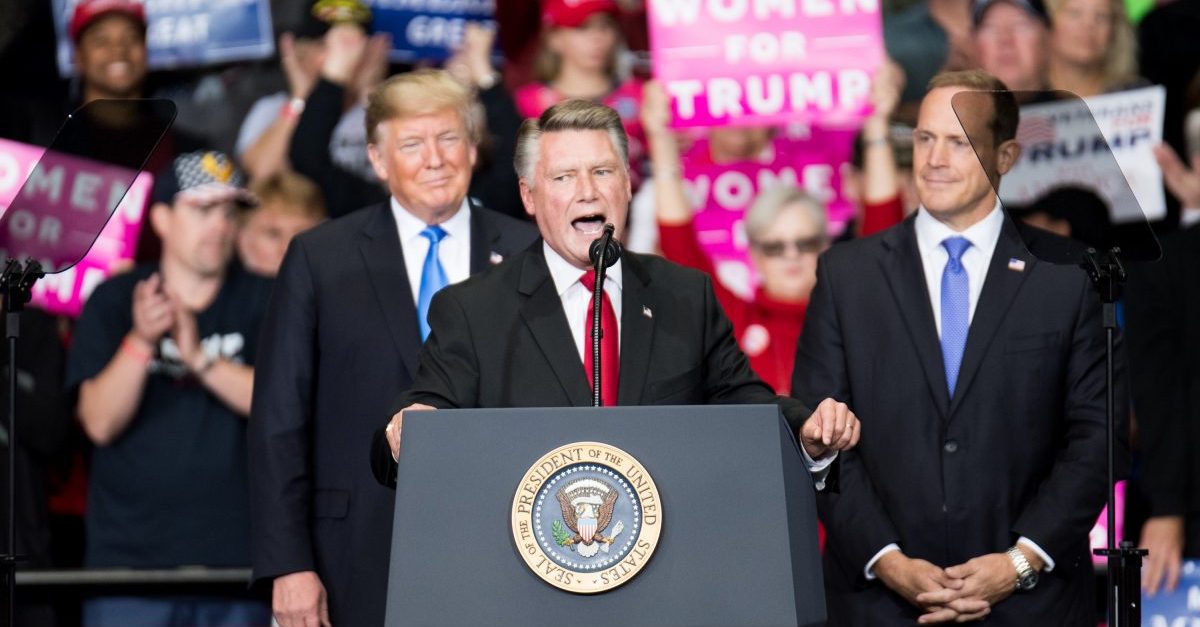
A judge in North Carolina declined to rule in favor of a Republican congressional candidate seeking to be seated in the U.S. House of Representatives. On Tuesday afternoon, Wake County Superior Court Judge Paul Ridgeway rejected a lawsuit filed by Reverend Mark Harris demanding that he be seated because the district currently lacks representation in the lower chamber.
The presumptive congressman-elect for North Carolina’s hotly contested 9th Congressional District filed suit amidst an ongoing investigation into whether illegal tactics–admittedly used by several Harris campaign employees–had unfairly benefited the Harris campaign. The North Carolina State Board of Elections (NCSBE) opposed Harris’ bid to force a winner in the contest.
An attorney for the board said that while the investigation was still preliminary, a lot of the evidence so far suggested that Harris’ win was somehow tainted by his campaign’s unlawful tactics. The attorney also dismissed Harris’ attorney’s argument that the evidence suggested the opposite–because no one but the board members themselves have actually seen the evidence in totality.
“I’m the board’s counsel and I don’t know that,” the attorney said.
The controversy stems from admitted and unlawful collection of absentee ballots by election workers hired onto the Harris campaign by Harris campaign consultant McCrae Dowless. Under North Carolina law, it’s unlawful for political campaign workers to collect absentee ballots from voters. Only voters themselves and designated relatives are supposed to collect such ballots.
Dogging the Harris campaign’s admitted illegality are several affidavits from voters in multiple counties suggesting that Harris campaign staff not only collected their ballots but later filled those ballots in for Harris, altered their ballots or destroyed the ballots entirely if they were found to contain votes for Harris’ Democratic Party opponent Dan McCready.
Election night totals appeared to give Harris a 905-vote victory over McCready. The McCready campaign believes the unlawful collection of absentee ballots by the Harris campaign marred the showdown and the Democrat has called for a do-over election. The NCSBE was unable to complete their inquiry and still believes there’s work to be done in order to reach a conclusion.
“It’s an open question who won this election,” an attorney for the election board noted during Tuesday’s hearing.
Judge Ridgeway agreed with Tarheel State election authorities. He said there’s simply not evidence for the court to use such “extraordinary power” by seating him and that such an outcome would be “highly unusual.” Ridgeway also counseled Harris that he would best be served by raising the issue in a couple weeks when a new state election board is seated at the end of January.
Unrelated to the vote-rigging allegations, the previous incarnation of the NCSBE was dissolved last year via court order. Judges in North Carolina previously ruled that the GOP-dominated state legislature made unconstitutional changes to the NCSBE’s structure and the board no longer existed as of December 28, 2018. Attempts to have an interim board continue working on the 9th district case were then foreclosed against by North Carolina Republicans who declined to submit proposed board members.
The absentee ballot harvesting/altering scandal had been under the previous board’s purview but the investigation stalled out after the board’s December dissolution. A newly appointed NCSBE is all-but certain to take up the 9th district inquiry once its members are seated; observers in the Tarheel State expect the newly-constituted NCSBE to call for an evidentiary hearing in order to settle the 9th district vote-rigging controversy once and for all.
[image via Sean Rayford/Getty Images]